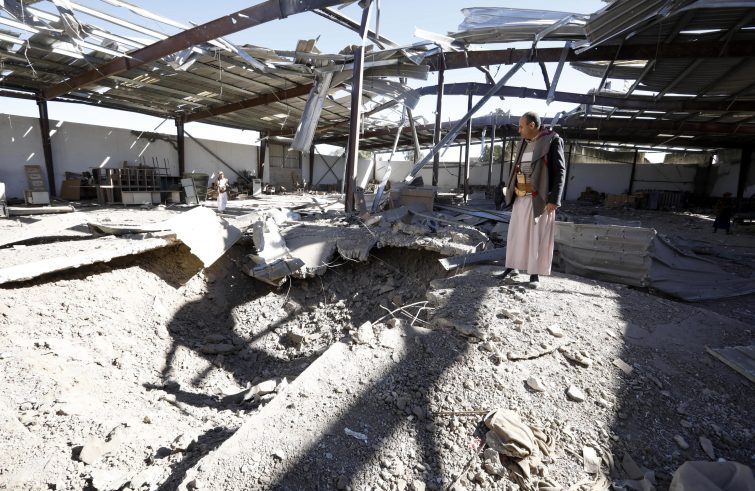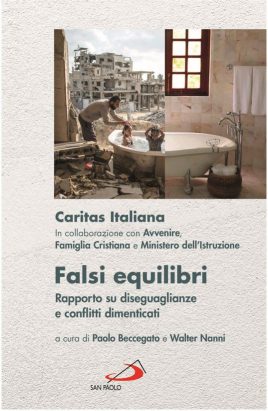
In the pandemic years, twenty-one high-intensity wars were being fought across the world in 2020, six more than in the previous year, when they numbered fifteen. Yemen, Syria and South Sudan were among the most severe. Including the conflict in the Ethiopian region of Tigray, this figure rises to 22 in 2021. If we take into account all violent conflicts and escalations, the total figure for 2020 is 359, just one more than in 2019. In contrast, an alarming increase was registered in the number of people in need of humanitarian aid, 40% more from 2020 to 2021, corresponding to 235 million people affected. The UN agencies, the international community and the EU have declared that they are unable to extend aid to more than 165 million people in 56 countries, leaving 75 million people without any institutional form of aid. Civil society and other bodies such as Caritas and NGOs compensate for this vacuum. In addition, the number of refugees and displaced persons has more than doubled in 10 years, hitting a new high of 82.4 million. The underlying causes, in addition to conflicts, are deep-rooted crises such as the one in Venezuela. These are among the findings of the Caritas Italy Report on inequalities and forgotten conflicts entitled “False Balances”, presented in Rome on Thursday.
 The failure of humanitarian aid. “The increasing number of people in need of humanitarian aid is extremely worrying,” Paolo Beccegato, deputy director of Caritas Italy, editor of the report together with Walter Nanni, told SIR. “To not even succeed in bringing food to the refugee camps is a manifest failure.” The report focuses on inequalities and on COVID-19, “which although not the cause of conflicts, may have worsened them since some governments have exploited the situation”, Beccegato pointed out. “But ceasefire agreements have been signed in other cases.”
The failure of humanitarian aid. “The increasing number of people in need of humanitarian aid is extremely worrying,” Paolo Beccegato, deputy director of Caritas Italy, editor of the report together with Walter Nanni, told SIR. “To not even succeed in bringing food to the refugee camps is a manifest failure.” The report focuses on inequalities and on COVID-19, “which although not the cause of conflicts, may have worsened them since some governments have exploited the situation”, Beccegato pointed out. “But ceasefire agreements have been signed in other cases.”
A multi-hued global picture. The pandemic, he continues, “has definitely caused a deterioration of democratic systems.” Various indicators show that in 70% of the world’s countries “democracy has slipped into recession”: “The pandemic has been utilised to curb protests and stifle freedoms and dissent.” Poverty and hunger have increased, causing instability, while some nations are facing a situation of ‘vaccine apartheid’, where vaccines are provided to some groups over others. “
Social inequalities. The study also examined inequalities: “All the indicators are increasing,” Beccegato explains. “Horizontal inequalities between power-seeking groups are the greatest causes of conflict and violence.” The study analyses the deadly combination of factors behind wars: absolute poverty, inequality, recession, a limited number of sources of income and the grabbing of natural resources by other Countries. Climate change and the interaction of financial interests with war are among the other factors responsible for the dramatic increase in humanitarian needs. For instance, he pointed out, “financial speculation on food prices, which has been occurring over the last few weeks, creates poverty and consequently wars.” Weapons manufacturing and trade are also cause for concern. “Those with the most weapons available wage war, and this explains the proliferation of conflicts”, said the deputy director of Caritas Italy.
Only one in two youths can identify a world conflict. A section of the report focuses on young people’s awareness of armed conflicts, with sample surveys on the Italian population, in high schools, and among CA youths. The figures are discouraging: 1 in 2 young people are unable to identify a war fought in the last five years, with very little knowledge of the geopolitical scenario. “This is due to a low level of information – said Beccegato -. In Italy we only talk about the pandemic and not about poverty, wars or violent conflicts.” On a positive note, the Report shows that “we are a peace-oriented people who want conflicts to be resolved through diplomacy and political mediation, who recognise the role of the Pope, the Church and of not-for-profit organisations in upholding rights and anti-war efforts.” “Policies against hunger and to fight the structural causes of poverty – he concludes – are those that promote peace.”









